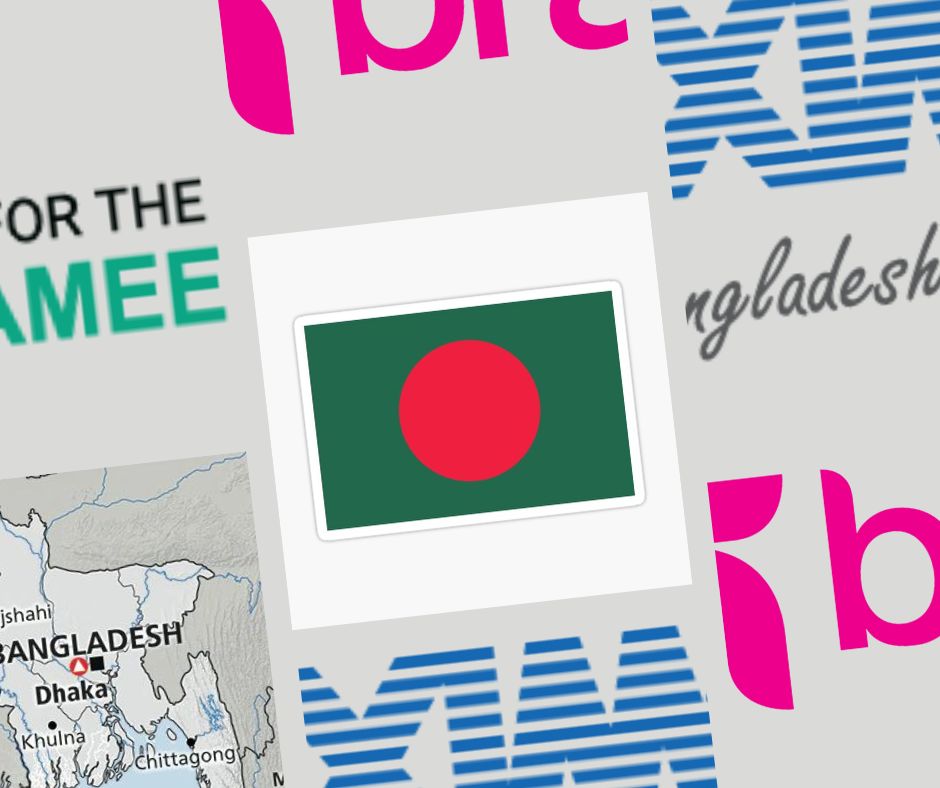What Bangladeshi Private Companies Can Learn from American Companies
- October 10, 2024
- views
The United States is home to some of the most successful and innovative companies in the world, with its corporate giants shaping industries across the globe. From tech firms like Apple, Google, and Microsoft to retail and manufacturing powerhouses like Walmart and General Motors, American companies have become synonymous with efficiency, innovation, and leadership. As Bangladesh continues to strengthen its private sector and fuel economic growth, there are valuable lessons that Bangladeshi companies can draw from the success of their American counterparts. Here are some key takeaways for Bangladeshi private companies: 1. Emphasis on Innovation and R&D One of the defining characteristics of leading American companies is their commitment to innovation and research & development (R&D). Companies like Apple, Google, and Amazon invest heavily in R&D to stay ahead of the competition and bring cutting-edge products and services to market. These firms understand that continuous innovation is the key to long-term success. Bangladeshi private
The pharmaceutical sector in Bangladesh has grown remarkably over the past few decades. As one of the most vital industries in the country, it not only caters to the local market but also exports to over 150 countries. With the potential to expand further and capitalize on global opportunities, the sector is now at a critical juncture. To ensure continued growth and competitiveness, there are several strategies that can help strengthen Bangladesh's pharmaceutical industry. Below are five key recommendations to propel the sector forward. **1. Investment in Research and Development (R&D)** One of the biggest challenges facing the pharmaceutical industry in Bangladesh is the relatively low level of investment in research and development (R&D). While the industry has excelled in producing generic medicines, it has lagged behind in creating innovative products. To remain competitive in the long run and reduce dependency on imported raw materials, local companies must increase their focus on
As Bangladesh continues its economic journey, it must focus on sustainable development to ensure that growth is inclusive and environmentally responsible. Climate change remains a pressing issue for the country, with rising sea levels and extreme weather events posing threats to agriculture, housing, and infrastructure. To restore confidence and accelerate economic recovery, Bangladesh must prioritize reforms in key sectors such as banking, agriculture, and manufacturing. The banking sector, in particular, requires greater oversight to address issues related to liquidity, non-performing loans, and financial governance. By implementing reforms that encourage transparency and strengthen financial institutions, Bangladesh can create a more stable economic environment that fosters growth. In agriculture, modernizing farming techniques and improving access to technology will enhance productivity, reduce dependency on imports, and support rural livelihoods. Similarly, investing in high-tech manufacturing and diversifying exports beyond RMG will open new avenues for growth and create higher-paying jobs. Bangladesh’s greatest asset is its people. With
Despite this impressive progress, the recent political turbulence has tested Bangladesh’s economic stability. Widespread violence, strikes, and factory closures have disrupted key industries, particularly the RMG sector, which is the backbone of the country’s export earnings. Economic uncertainty has also led to reduced investor confidence, slowing down both domestic and foreign investments. Additionally, systemic inefficiencies, such as bottlenecks in governance, bureaucratic delays, and the need for banking sector reforms, have exacerbated the situation. These challenges, if left unchecked, could pose long-term risks to the country’s development agenda. However, Bangladesh has faced difficult times before, and the current situation, while critical, can serve as an opportunity to reset and rebuild. The leadership of the interim government and its focus on addressing the country’s most pressing issues could help guide the nation toward recovery. Amid these challenges, Bangladesh’s economic journey continues, and with the right strategies, the country can emerge stronger. Several opportunities can be
Bangladesh is facing both challenges and opportunities. It is one of the fastest-growing economies in South Asia. But now the country is grappling with political turbulence and economic uncertainty. Yet, despite these obstacles, Bangladesh’s economic story remains one of optimism. With the formation of the interim government, led by Muhammad Yunus, and strategic interventions across key sectors, Bangladesh has the potential to regain its momentum and continue on its path toward sustainable development. Before the recent political unrest, Bangladesh was on track to achieve even greater milestones, with GDP growth rates consistently above 6%, an expanding export base, and infrastructure projects that promised to enhance connectivity and boost industrial productivity. The nation’s ability to rise above natural disasters, global economic downturns, and supply chain disruptions showcased its capacity for resilience. While the current challenges may seem daunting, Bangladesh’s economic journey is far from over. With strategic leadership, focused reforms, and a commitment
The Bhutanese king, Jigme Khesar Namgyel Wangchuck, met Prime Minister's Private Industry and Investment Adviser Salman F Rahman and requested to expedite the implementation of the Bhutan Economic Zone in Kurigram. The king also expressed optimism about the new opportunities that will grow in regional supply chain management in the next couples of years. In the courtesy meeting, the Bhutanese king also informed Prime Minister's Private Industry and Investment Adviser Salman F Rahman about an economic hub in Gelephu district of Bhutan and said Bangladesh can take benefits from the economic hub. He is optimistic that enthusiastic Bangladeshi investors will invest there. The king informed that the Special Economic Zone is located on the banks of the Dharla River. Bhutan and Bangladesh has strong bilateral ties.
[BEXIMCO Group](http://www.beximco.com), one of the leading private conglomerates in Bangladesh, was recently approved to issue zero coupon bonds worth Tk 1,500 crore. Bangladesh Securities and Exchange Commission (BSEC), the commission that regulates the country’s capital market and protects the interest of investors announced and gave the final approval of the news. According to a press release, the amount incurred through the bond will be used to develop the township project named Mayanagar, in a joint venture with Sreepur Township Limited. BEXIMCO Group owns 75% of the total land and Sreepur Township owns the remaining 25%. The rest will be used to settle the company's existing loans. A zero-coupon bond is a debt security that does not pay interest but instead trades at a deep discount. It renders a profit at maturity when the bond is redeemed for its full face value. Each unit of the authorized zero coupon bond is worth Tk
Undeniably, the COVID-19 pandemic had a significant impact on the Bangladeshi economy as it had a significant impact on most countries of the world. It led to a slowdown in economic growth. It also increased unemployment in the country. The government, led by Prime Minister Sheik Hasina, has taken several effective steps to hold up the economy. The steps included providing financial assistance to affected businesses and individuals, offering business tips to struggling businesses and brining in investment from large investors.  Local companies, otherwise known as Bangladeshi origin companies also came forward. Prominent companies that are still making the most contributions to the economy post COVID-19 pandemic era include: BRAC – Known as the world's largest non-governmental development organization. It is involved on poverty reduction and empowerment of the poor, particularly women and children. Square Group - A leading Bangladeshi conglomerate that has investments in pharmaceuticals, textiles, and consumer goods. It has taken
The textile industry of Bangladesh is a major source of foreign remittance income. Garments and textile exports are significantly contributing to the economy. The industry accounts for over 77% of Bangladesh’s export earnings and about 10% of its GDP. Over the last two decades, the textile industry has surpassed all expectations and proved to be extraordinarily successful. It is currently a 19 billion dollar business with over 4 million workers employed. The industry is the second largest manufacturer and exporter of western brands. Bangladesh mainly exports to the U.S, E.U., Canada and Singapore. The textile and apparel sectors consist of about 3500 firms at the moment. Out of the three main sectors of the Bangladeshi textile industry, the private company sector is growing the fastest. Until Bangladesh’s liberation in 1971, the textile sector was primarily a section of import substitution industrialization. Export oriented industrialization was applied in the post-war era.
Bangladesh saw an huge economic growth in recent decades. The trend is continuing. Much of this growth and success can be credited to the country's top and prominent privete sector companies. Here are the contribution of five of the most prominent private companies in Bangladesh and how they could made a positive impact on the country's economy and society. **Grameenphone:** Grameenphone, as the leading telecommunications company, has revolutionized the way people in Bangladesh communicate. it has an extensive and reliable network infrastructure. With this network infrastructure, Grameenphone is offering seamless communication across the country. In many ways, it ensured transformation acroos the country. Its efforts reduced the digital divide and increased accessibility to information acroos the whole country.  **Beximco Pharmaceuticals:** In the global pharmaceutical sector, [Beximco Pharmaceuticals](http://https://www.beximcopharma.com/) is the proud ambassador of Bangladesh. The company is the most reliable maker of high-quality medicines in the national market. It is a wing of BEXIMCO Group

